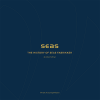Shakespeare, Love and Service
Peter Laslett’s comment, in The World We Have Lost, that in the early modern period ‘every relationship could be seen as a love-relationship’ presents the governing idea of this book. In an analysis that includes Shakespeare’s sonnets and a wide range of his plays from The Comedy of Errors to The Winter’s Tale, David Schalkwyk looks at the ways in which the personal, affective relations of love are informed by the social, structural interactions of service. Showing that service is not a ‘class’ concept, but rather determined the fundamental conditions of identity across the whole society, the book explores the inter-penetration of structure and affect in relationships as varied as monarch and subject, aristocrat and personal servant, master and slave, husband and wife, and lover and beloved, in the light of differences of rank, gender and sexual identity.
• Unusual in introducing the aspect of love to the discussion of service in Shakespeare’s works • Pays close attention to Shakespeare’s sonnets and their relation to the plays • Considers the fact that the players on stage were themselves servants in examining the role played in the theatrical representation of service
ContentsIntroduction; 1. ’Thou serv’st me, and I’ll love thee’: service and love in Shakespeare’s world; 2. Performance and imagination: The Taming of the Shrew and A Midsummer Night’s Dream; 3. The bounds of service and the bonds of love: The Comedy of Errors, As You Like It and The Tempest; 4. ‘More than a steward’: the sonnets, Twelfth Night, and Timon of Athens; 5. The services of friendship: Henry IV Parts 1 and 2, the sonnets, and Antony and Cleopatra; 6. ‘I am your own for ever’: King Lear and Othello; 7. ‘Something more than man’: The Winter’s Tale.
- Forlag: Cambridge University Press
- Kategori: Teori
- Lagerstatus: Ikke på lagerVarsle meg når denne kommer på lager
- Antall sider: 336
- ISBN: 9780521886390
- Innbinding: Innbundet













